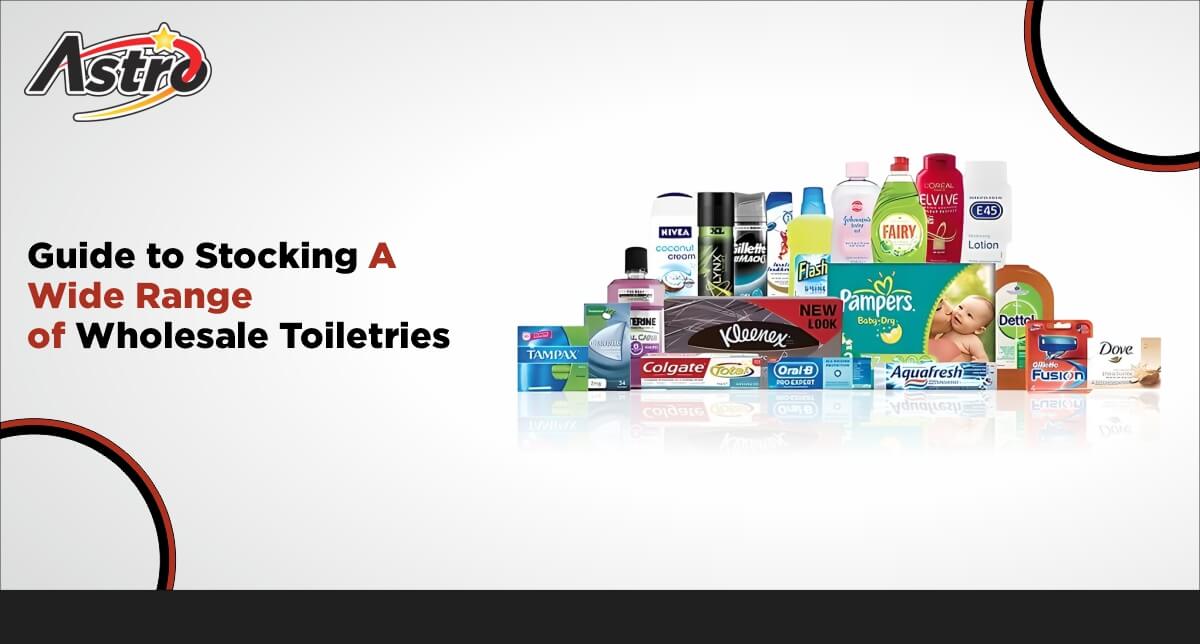The Importance of Keeping Your Wholesale Stock Updated
Keeping your bulk stock up to date is essential for many reasons, such as keeping customers happy and running your business more efficiently. In the fast-paced business world, keeping up with trends and customer needs can significantly affect your bottom line. This detailed guide talks about why keeping your wholesale inventory up to date is important, what benefits it has for your business, and how to handle your stock effectively and efficiently.
The Advantages of A Well-Maintained Wholesale Stock
A meticulously managed wholesale supplier provides numerous benefits to your organisation, serving as a solid foundation for success:
-
Increasing customer satisfaction
When a customer orders an item that isn't in stock, it makes them very angry. Keeping your inventory up to date will help you ensure that orders are filled correctly and avoid backorders. This builds trust with customers, strengthens your relationships with them, and keeps them returning for more.
-
Increased Sales and Revenue
If your product information is outdated, you might not have enough of an item to fill customer orders. This means missed chances to make sales and money. Having up-to-date inventory lets you take advantage of every customer question, which increases sales and your bottom line.
-
Reduced Costs and Improved Profitability
Costs and profits go down because overstocking slows down cash flow by tying up valuable capital in items that might not sell fast. On the other hand, not having enough stock means missing sales chances. Keeping your stock up-to-date lets you find the best mix between minimising the cost of storage, insurance, and the risk of items going out of style for items that don't sell very quickly. Ultimately, this means more money for the business and better health.
-
Streamlined Order Fulfillment
Having accurate information about your goods lets your team fill orders quickly. The warehouse staff can quickly find what customers want, so they don't have to waste time looking for stock that they've lost or that doesn't exist. People will be happy when they get their orders quickly.
-
Informed Decision-Making
Accurate inventory data is a treasure trove of information. You can use it to make intelligent choices about what to buy, how to sell it, and how to promote it. You can determine which things sell the most and quickly change your stock levels to match. This gives you an edge over your competitors.
Strategies for Optimal Inventory Management: Mastering the Art of Inventory Juggling
Now that we've established the benefits of updated inventory, let's look at the tactics you can use to keep your discount suppliers' balancing act operating smoothly:
-
Implement a Robust Inventory Management System
Invest in a new Inventory management system (IMS). These software programs make it easy to keep track of stock, see what's in stock at all times, find trends, and even guess what customers will want in the future. This takes the guesswork out of managing supplies and lets you make choices based on facts.
-
Conduct Regular Inventory Audits
Don't just depend on software. Regularly check your physical and digital inventory to find and fix any problems and ensure your stock amounts are correct. This catch-up ensures that your virtual inventory matches the stock you have in your building.
-
Implement a Forecasting System
Demand forecasting is the art of figuring out how much of a particular product will be needed in the future. To do this, you must look at past sales data, study the market, and look at seasonal trends. Using a forecasting system, you can change your stock levels before they go too low or too high, ensuring you have the correct goods in stock at the right time.
-
Utilize Data Analytics
Data is king in the business world, so use data analytics. Use tools for data analytics to learn more about your products. Look at trends, find things that don't sell quickly, guess when you'll run out of stock, and make the best use of your inventory. These tools help you choose what to buy based on facts so you don't end up with useless stock that takes up room and resources.
-
Partner with Reliable Suppliers
A critical part of managing your inventory is knowing and trusting your providers. If you have reliable wholesale suppliers, you can quickly restock when you run out and plan deliveries to always have enough inventory. They can also tell you a lot about business trends and possible problems in the supply chain.
-
Embrace Technology Solutions
The wholesale supplier business is constantly changing, and new tools are coming out to make managing inventory easier. You might want to look into more advanced options like
1. RFID: RFID tags are used to track items in real time and get instant information on inventory instead of scanning items by hand and making mistakes.
2. Artificial Intelligence (AI): AI-driven platforms can look at large datasets and predict future demand more accurately. This lets companies keep track of their inventory more efficiently and make better buying decisions.
-
Stay Informed and Adapt
The world of business is constantly changing. Know what's happening in the supply chain, what consumers want, and what business trends are happening. To stay competitive and in touch with changes in the market, you should be flexible and ready to change how you handle your inventory as needed.
The Bottom Line
To wrap it up, keeping your wholesale stock up to date is an ongoing process that needs dedication and constant growth. By using the above tips, you can make it easier to keep track of your inventory, make your customers happier, and succeed in the competitive wholesale distribution world in the long run. Remember that a well-run inventory isn't just a cost centre; it's a strategic tool that helps your business grow and make money. Accept the challenge of improving your stock, and your wholesale supplier will reach its full potential.












